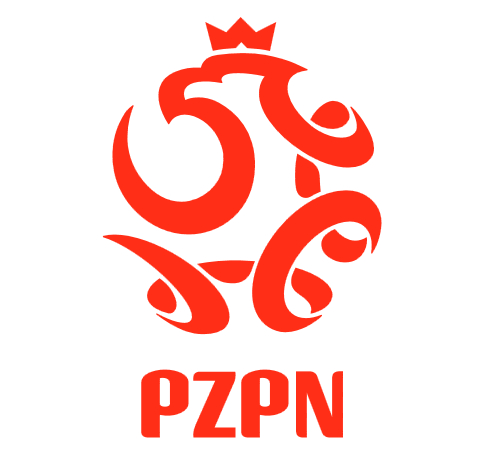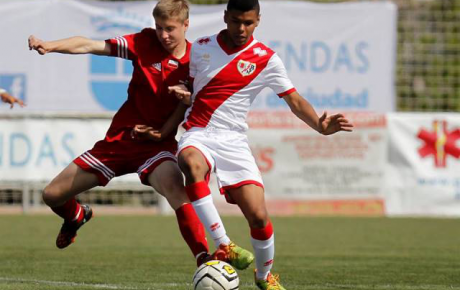Pre-match day
Hydration: Losses of fluids can cause deterioration of the effects of effort. Selection of proper amount of fluids is a very individual matter, it relies on the observation of your own organism.
Daily water demand with regards to age: Boys: 7-9 years old (1900ml); 10-12 years old (2400 ml); 13-15 years old (3000 ml); 16- 18 years old (3300ml)
Girls: 10 -12 years old (2100 ml); 13-15 years old (2200 ml); 16-18 years old (2300 ml)
Meals during the day: You should limit products rich in fibre before training, choosing those with average or small amount such as millet, basmati rice, rice noodles, potatoes. Most of fruit and vegetables are rich in fibre but to reduce its amount you can eat vegetables consommé or steamed ones. As an addition to the meals choose those with a smaller amount of fibre such as tomatoes (without skin), olives, zucchini, grapes, grapefruit, beetroot. Meals should be prepared by stewing with a small amount of fat, grilling carefully, or steaming to obtain a mild flavour of the food.
Day of the match:
Pre-performance meals should be planned according to the procedure of the day before that is based on products with a smaller amount of fibre, and animal fats, prepared by steaming or stewing to obtain a mild flavour of the food.
If a player still feels discomfort from alimentary canal (stitch, stomachache, splashing in the belly) while playing, he should give up diary produce containing lactose (sugar) such as cottage cheese, milk, yoghurts. It can be changed to vegetable based milk: rice milk, almond milk or take it in a different part of the day (breakfast, second breakfast, supper). Proteins should be slightly reduced in pre-match meals in order to provide it in bigger amounts with the post-match meal.
Hydration: Before breakfast: 250-500ml* fluids: (suggested fluid: water )
Meal/Breakfast: Examples of meals: muesli with tropical fruit and vegetable milk, frittata with tomatoes and light seasoning and bread, millet pancakes with raspberries, sweet omelette.
* Read a feature article on „Alimentary canal disorders”. HERE
Hydration: Before breakfast: 250-500ml* fluids: (suggested fluid: water )
Meal/Breakfast : Examples of meals: : muesli with tropical fruit and vegetable milk, frittata with tomatoes and light seasoning and bread, millet pancakes with raspberries, sweet omelette.
Hydration: Before the match: 2-3h 400-600ml* fluids (suggested fluid: water)
Match meal/Lunch (2-4h ): The match meal has to give you energy, prevent you from feeling fatigue, improve complex skills such as strength, agility, concentration. It should be easily digestible, individualised and adjusted to your organism.
|
Product base
|
Examples of meals
|
|
Carbohydrates: millet, basmati rice, potatoes, rice noodles, durum pasta, graham bread, wheat bread
Vegetables: carrot, beetroot, pumpkin, zucchini, vegetables consommé, tomatoes (without skin), pumpkin
Fruit: bananas, oranges, kiwi, watermelon, melon
Proteins: fish, eggs, meat (chicken breast, turkey breast, beef, rabbit)
|
Millet with fruit and vegetable milk
Egg muffins with vegetables and bread
Spaghetti pasta/rice noodles with chicken and tomato sauce
Toasts with lean ham and vegetables
Risotto with turkey and easily digestible vegetables (carrot, beetroot, pumpkin).
|
Pre-match snack (1-2h): In case of hunger, take an additional snack: energy bars (muesli, oat cakes), tropical fruit, fruit cocktails, yoghurt with fruit, fruit mousse.
Important! Before training, give up sweets (chocolate, bars, sweet drinks) as they will cause a rapid increase of sugar level and then rapid decrease which will contribute to sluggishness and fatigue during the training.
Hydration: A moment before the match: 30 minutes: 200-300 ml* fluids (suggested fluid: water or isotonic drink)
Match:
Snack: During the match you can take a small snack such as energy bar, isotonic drink or juice diluted with water (1:1).
Hydration: Given the competition protection requirements, the only chance to replenish the fluids during the match is the break. Most of young footballers, excited about the competition, forget about replenishing losses during the match and training. Proper hydration during the match is absolutely necessary. During the match, depending on individual tolerance, the amount of liquids which should be taken during the break is 150-200 ml (suggested fluid: water or isotonic drink).
Post-match meal:
Regeneration (30’) During the season professional footballers need to take care of their post-match regeneration and prepare themselves for the next meeting as soon as possible. The post-training meal should be eaten up to 30 minutes after the activity. It should be a source of easily-released carbohydrates in order to replenish the losses of glycogen.
Examples of meals: Fruit mousse, Fruit: bananas (approx. 2 pieces), pineapple, Fruit cocktail, Sandwich with honey/jam. Dry fruit (dates, dry figs, cranberry), Fruit juice, Energy bars, oat cakes.
Main post-training meal (1-2h) Next meal eaten at home should be wholesome and include proteins, carbohydrates and some vegetables.
Examples of a main post-training meal: Frittata with vegetables and bread (wholemeal, graham)/ Scrambled eggs with vegetables and bread (wholemeal, graham), bread (wholemeal, graham, Letcho with lentils, bread (wholemeal, graham, Greek-style fish with millet Turkey breast with broccoli, rice and vegetable salad, Wholemeal toasts with cottage cheese and vegetables, Tomato cream with mozzarella cheese and bread.
Fluids: Replenish the loss of fluids.
Losses of fluids when converting it to the loss of body weight
pre-training month– post-training month = losses of fluids compensation in 100-150% (of body weight losses, suggested fluid: water or isotonic drink)
Evening hours: 250-500ml* fluids (suggested fluid: water)
*According to individual need.











